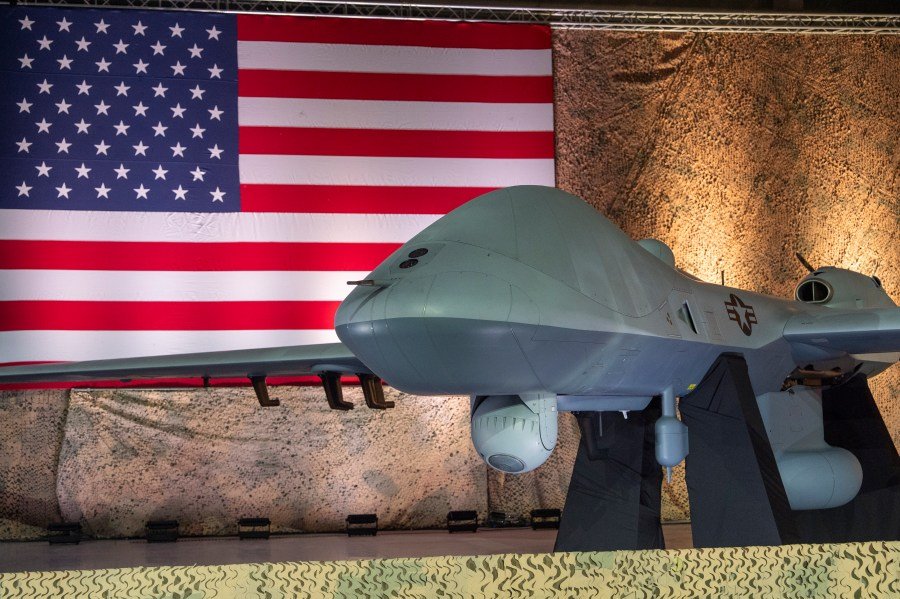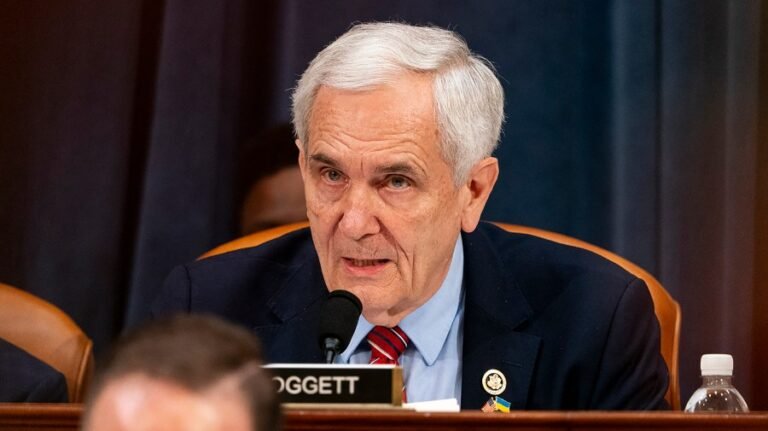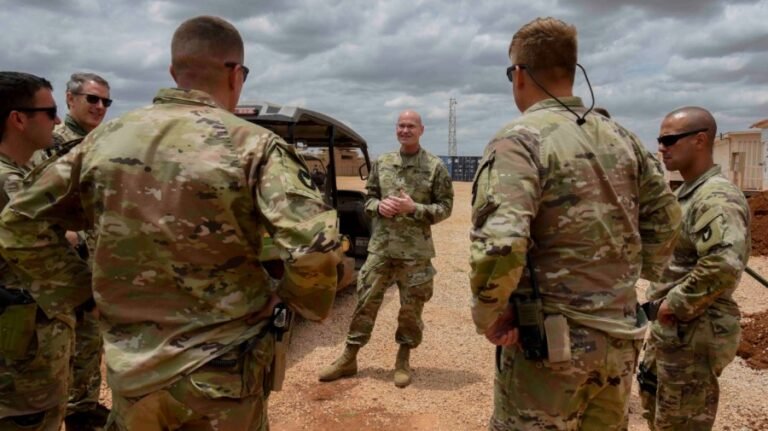
Editor’s Note: This story was updated to correct the byline. We regret the error.
Iran’s missile attack against the Al Udeid U.S. Air Force base in Qatar reveals an inconvenient fact: The U.S. base there is a military liability. Worse, it is also a political liability, granting Qatar, with its anti-American agenda, too much leverage over U.S. policy.
It is time for U.S. forces to move on.
Al Udeid was the U.S. military’s crown jewel in the Middle East for two decades. Qatar built the base, the largest in the Middle East utilized by the U.S., at a cost of more than $8 billion. Al Udeid serves as the primary logistics hub and epicenter of U.S. air operations throughout the Middle East.
During his recent visit, Trump called the base “incredible” and Qatar “a great place to have it, right in the middle of the Middle East.”
“Obviously, it’s a very important location,” he said.
But it is actually in the wrong location. As Iran demonstrated, Al Udeid lies within easy range of its many drones and missiles. That not only makes it extraordinarily vulnerable but also effectively useless in any conflict with Tehran.
As our colleague, former Commander of U.S. Central Command Gen. Frank McKenzie, detailed in a report for our organization, the base “will be rendered unusable by sustained Iranian attack.”
Indeed, ahead of last month’s U.S. strikes on Iran, most U.S. warplanes stationed at Al Udeid left the base not to participate in that strike (which did not include a single plane flown from Al Udeid) but to keep them safe from Iranian attack.
Concern about Al Udeid’s vulnerability to Iran has also led the U.S. military to duplicate many of its command functions — such as Combined Air Operations Center — at other bases.
But while it is a military liability for the U.S., it is valuable to Qatar as an effective means for convincing American policymakers to ignore its mischief. For two decades, Qatar has been perhaps the second greatest state sponsor of terrorism, behind only Iran. Qatari-owned Al Jazeera has been the premier outlet for radical Islamist ideologues — a font of anti-American, anti-Israeli and antisemitic propaganda.
Doha has been a haven for, and funder of, Hamas and other Muslim Brotherhood terrorist affiliates, Al-Nusra Front, the Taliban and al Qaeda, including Khaled Sheikh Mohammed, who helped plan the 9/11 attacks.
Nor did Hamas’s barbaric Oct. 7 invasion of Israel cause Qatar to reconsider its support. The Qatari Foreign Ministry immediately blamed Israel, the victim, without condemning Hamas. Eulogizing Yahya Sinwar, the architect of that horrendous attack, the Qatari emir’s mother posted, “He will live on and they [Israelis] will be gone.”
Qatar has gone to great lengths to whitewash its image, starting with building and maintaining Al Udeid. The perceived importance of this one base contributed to former President Joe Biden naming Qatar a major non-NATO ally in 2022 and extending the U.S. lease for another 10 years in 2024.
During Trump’s May visit, Qatar announced up to $38 billion in potential additional investments in Al Udeid.
But Qatar’s influence campaign does not end there. It has shrewdly mediated with bad actors such as Hamas for the U.S., but it is unclear whose interest it has served.
Also, it has used its great wealth to influence U.S. policy and education, such as by giving Trump a luxury jet for use as Air Force One, signing of an agreement for $1.2 trillion in “economic exchange” and spending over the past two decades billions on lobbying, public relations, investments and donations to U.S. think tanks and universities.
Enough is enough. In one fell move, the U.S. can further bolster its position against Tehran, protect its forces in the region and wean itself off Qatar’s pernicious influence: departing Al Udeid. Operationally, this would not be as big a lift as it might seem. U.S. planes have already left the base; there is no reason for them to return.
Crucially, the U.S. has better options in the region. Israel has greater distance from Iran and proven air and missile defense capabilities. With Israel’s transfer to U.S. Central Command in 2021, as our organization recommended, U.S. forces could operate region-wide from bases in Israel and be much safer from Iranian projectiles.
Western Saudi Arabia provides another option for bases farther away from the Iranian threat, which would still keep Iran’s nuclear facilities within range of U.S. aircraft.
Al Udeid is a base that is useless for operation against our main regional adversary, no longer performs a unique function, yet is an easy target for attack.
Just because Qatar wants to give us a base does not mean we have to use it.
Michael Makovsky, a former Pentagon official, is president and CEO of the Jewish Institute for National Security of America. Blaise Misztal is its vice president for policy.




